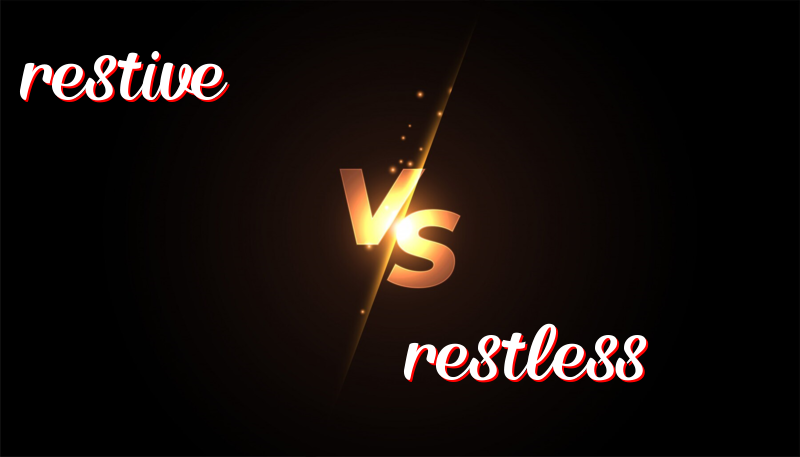英語單詞restive 與 restless的區別
November 18, 2024
解釋“restive”與“restless”之間的區別
在英語中,“restive”與“restless”是兩個容易混淆的詞,因為它們的拼寫相似,但實際上有著不同的意義和用法。
歷史
“Restive”最早出現在16世紀,源自於法語“restif”,意指“固執的”或“難以控制的”。而“restless”則源自古英語“restleas”,表示“無法安寧的”或“焦躁不安的”,其使用歷史可追溯至14世紀。
用法及範例
Restive
“Restive”通常用來描述某人或某物不守規矩,難以駕馭或控制的情況,尤其是在當它們被約束或受到限制時。
- The horse became restive when it heard the thunder.
當馬聽到雷聲時,它變得難以控制。 - The children grew restive after sitting in the classroom for several hours.
孩子們在教室裡坐了幾個小時後變得焦躁不安。 - The audience was restive during the politician’s long speech.
演講者冗長的演說使得觀眾感到不耐煩。 - The restive crowd started chanting for the concert to begin.
不安的群眾開始呼喊要求演唱會開始。 - The workers became restive due to the unfulfilled promises by the management.
由於管理層未能兌現承諾,工人們開始不耐煩。
Restless
“Restless”則通常用來描述一種不安、焦躁的狀態,表示某人或某物無法平靜或保持靜止。
- She felt restless before her big presentation at work.
在即將進行的大型工作演示前,她感到焦躁不安。 - The baby cried throughout the night due to a restless sleep.
嬰兒因無法平靜入睡而整晚哭泣。 - He has always been a restless traveler, never staying in the same place for too long.
他總是個不安定的旅行者,從來不會在一個地方停留太久。 - The restless sea made it difficult for the ships to dock safely.
不安的海浪讓船隻難以安全停靠。 - After hours of restless tossing and turning, she finally fell asleep.
經過幾個小時的不安翻來覆去,她終於睡著了。
記住區別的技巧
可以通過它們各自的詞根來幫助記住區別:“Restive”裡有個“t”,就像“standing firm”的“t”中的狀態,意味著難以移動或控制;而“restless”帶有“less”,意味著“少”的狀態,類似於沒有休息或安寧的狀態。
總結
總而言之,當您想描述某物或某人難以控制或固執不安的狀態時,用“restive”;而當描述一種焦躁不安、無法平靜的感覺時,則使用“restless”。隨著練習和使用,這兩個單詞的區別將變得更加明顯。

Leave a Reply
You must be logged in to post a comment.